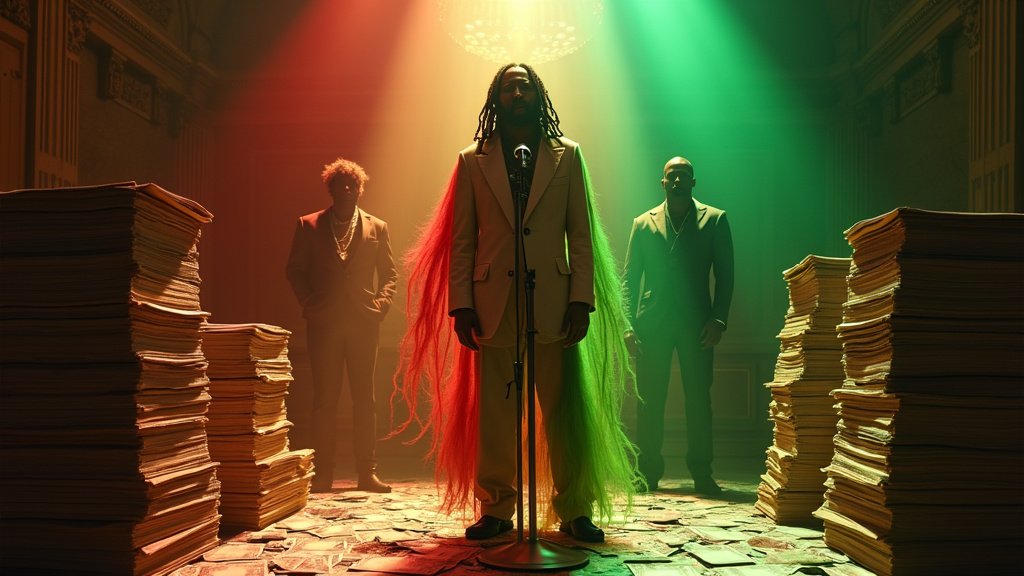The family of Maxie Smith, globally revered as Max Romeo, the quintessential reggae maestro whose profound voice became synonymous with Jamaica’s rich musical heritage, is steadfastly continuing his monumental £12 million (US $15 million) lawsuit for unpaid royalties. This determined pursuit comes in the wake of the legendary artist’s passing in April 2025 at the age of 80, leaving behind a profound legacy and a pivotal legal battle that could reshape the landscape of artist compensation in the music industry.
The lawsuit, lodged against formidable industry entities Universal Music Group (UMG) Recordings and Polygram Publishing, Inc., seeks to reclaim what Romeo had long maintained was rightfully his. The core of the claim asserts that the venerated musician was systematically denied royalties for an astounding 19 of his iconic songs. Among these are tracks that transcend mere hits, becoming anthems etched into the global consciousness, including his revolutionary reggae anthem “War Ina Babylon” and his indisputably biggest hit, “Chase The Devil.”
The Unpaid Legacy of a Pioneer
The prominence of Romeo’s work, particularly “Chase The Devil,” extends far beyond its original release. The track gained a new wave of recognition and commercial viability through its sampling by two of the most influential figures in contemporary music: US rappers Jay-Z and Kanye West. This high-profile usage underscores the extensive reach and enduring influence of Romeo’s creations, further amplifying the family’s contention that the financial returns generated by his music have not been adequately disbursed.
His daughter, Azanette Smith, has confirmed the family’s unwavering commitment to seeing the legal proceedings through. Her resolve echoes a sentiment her father frequently expressed throughout his life: that many Jamaican singers, often vulnerable due to their lack of legal and business resources, have fallen victim to similar injustices from powerful entities keen to exploit their music. This case, therefore, is not just about Max Romeo; it is a significant stand against a pattern of perceived exploitation that has plagued artists from the island for decades.
Broadening the Scope: Film and Gaming Disputes
Beyond traditional music royalties, the comprehensive lawsuit also seeks substantial compensation for the unauthorized or inadequately compensated featuring of Romeo’s music in other high-profile entertainment mediums. This includes his tracks being used in the critically acclaimed British film Yardie, a cinematic exploration of Jamaican culture and its diaspora. Furthermore, the legal action addresses the inclusion of his music within the massively popular gaming series Grand Theft Auto, a franchise known for its extensive and carefully curated soundtracks that often expose classic tracks to new generations of fans.
This multi-faceted legal challenge highlights the complex revenue streams associated with a successful music catalog in the digital age and the challenges artists and their estates face in ensuring fair compensation. The news of this ongoing battle serves as a stark reminder of the often-contentious relationship between artists who create timeless music and the corporations that profit from its global distribution and use.
As the family of Max Romeo presses forward with this £12 million claim, the outcome will be closely watched across the music industry, particularly within the reggae community. It represents a significant effort to secure the financial justice that Maxie Smith believed he was owed and, by extension, to uphold the rights and dignity of artists, particularly those from vibrant cultural origins like Jamaica, who have historically faced an uphill battle in the fight for equitable compensation for their extraordinary contributions to the world of music.

